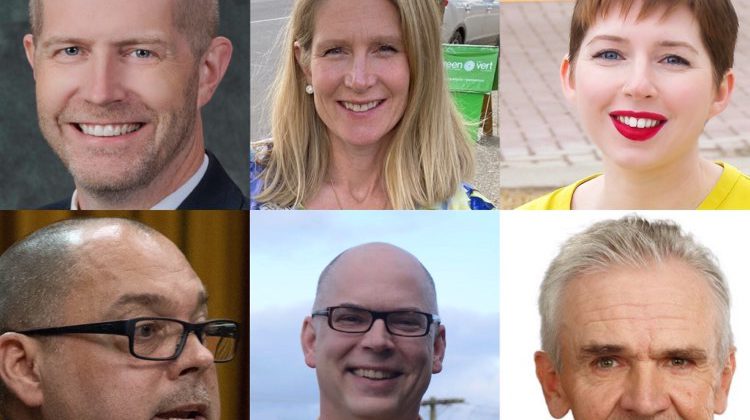The Federal Election will be held on Monday. MyCaribooNow reached out to each candidate in the Cariboo-Prince George riding for their responses to the following five questions:
- Can you provide a brief bio of yourself and let us know why you are running and what is the most important issue(s) to you?
- What is the best way to address a growing problem of social issues including homelessness, drug use, and the crime that sometimes results from it?
- With record temperatures this year and wildfires again a major concern, how would you address climate change?
- More healthcare workers are needed in Northern BC/Cariboo. What would you do to help and attract these kinds of professionals to your riding?
- Any final thoughts that you would like to pass on to the voters?
Here are their answers to our questions starting with why they are running and what they consider to be the most important issues.
IN ALPHABETICAL ORDER (Last name):
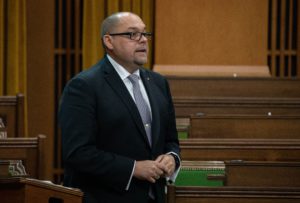
Todd Doherty, Conservative Party (Incumbent)
My wife and I both grew up here and chose to start our family here.
I understand the issues affecting our hardworking friends and families across Cariboo-Prince George and I have been able to successfully advocate for businesses and people who have been left behind by Ottawa.
I’m running to continue being a strong, proven voice for our region. We have so much potential here in the north, and we need someone in Ottawa who will stand up and fight back against reckless policies that have hurt our communities.
There is more work to do, and I am ready to take on this challenge again.
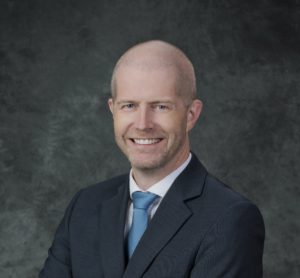
Garth Frizzell, Liberal Party
My wife Sue and I raised our three boys here in Prince George.
I’ve worked here in non-profits, founded an award-winning software company, currently teach entrepreneurship and economics, and for the last 13 years, I have been a Prince George City Councillor.
Last year during the pandemic, I was President of the Federation of Canadian Municipalities. Our advocacy work with the federal government led to many successes, like the Safe Restart program, and that meant millions of dollars in critical relief for all our local governments HERE.
The big issues of this election: climate change, housing, and reconciliation are ones that are critical to our communities here.
Jeremy Gustafson, Peoples Party of Canada
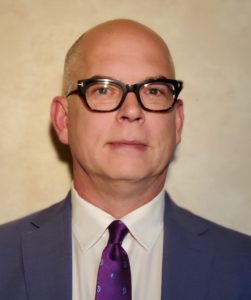
I was born and raised on Vancouver Island on the outskirts of Campbell River. I started working on my father’s salmon troller at age 14 and continued that for 8 summers. I was valedictorian of my 1984 high school grad.
After a couple of years of college and a year backpacking through Europe and the Middle East, I entered the fledgling BC casino industry in Victoria, and spent 8 years in gaming, including a year on Caribbean cruise ships.
My ship contract ended in Vancouver where I spent the last 22 years as a Grip in the film industry. Two months ago I escaped the city and now live in Horsefly, out in the woods.
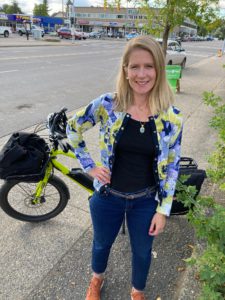
Dr. Leigh Hunsinger- Chang, Green Party
I have lived and worked in Prince George for the past 10 years.
During that time, I have worked as an Emergency and Family Physician and a Medical Educator. I have taken on prominent leadership roles in our medical school program and have been a champion of environmental action at UHNBC.
I currently run a Family Practice with two colleagues in Prince George. As a mother and family physician who has seen the devastating effects of climate-change-related disasters such as wildfires and heatwaves, I am compelled to stand and push for change.
The time for change is now!
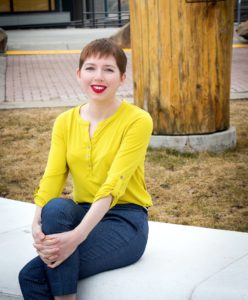
Audrey Mckinnon, NDP
I am a resourceful 35-year-old woman with a streak of courage and a lot of strength.
I have interviewed thousands of people as a former journalist at CBC Radio and I currently work at the Carrier Sekani Tribal Council, serving seven member First Nations. I am a professional artist, a mom, a partner, and an avid gardener.
I have lived in poverty as a single parent, scraping by to feed my family. While many politicians say they’re going to represent everyone in their riding, few know what it means to be hungry and unsure about whether you’ll have a roof over your head tomorrow.
We are at a turning point in Canada where we can become a leader when it comes to climate and to social justice, and I want Cariboo-Prince George to be at the forefront of the change we need.
We must address the climate crisis, the drug crisis, and affordability and I am advocating for solutions for each of those issues.
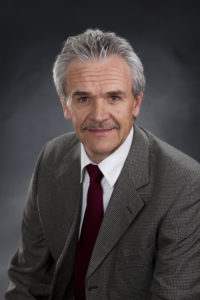
Henry Thiessen, Christian Heritage Party
I was born and raised in central British Columbia, where I still live with my wife Linda.
The main reason I’m running in this election is that I’m very concerned with the direction we are heading in this country.
The most important issue we are facing right now is that our government(s) has trampled our constitution and is turning this into a tyrannical state!
2. What is the best way to address a growing problem of social issues including homelessness, drug use, and the crime that sometimes results from it?
Todd Doherty:
We have a housing crisis in Canada that has only gotten worse under Justin Trudeau’s watch. Fortunately, help is on the way.
Conservatives will build 1 million homes in the next three years.
We will leverage federal infrastructure investments to increase housing supply, review the extensive real estate portfolio of the federal government and release at least 15% for housing while improving the Federal Lands Initiative.
We will continue the Conservative commitment to Reconciliation with Canada’s Indigenous Peoples by enacting a “For Indigenous, By Indigenous” strategy – long called for by Indigenous housing advocates.
To make mortgages more affordable, we will encourage a new market in seven-to-ten-year mortgages that will provide stability both for first-time homebuyers and lenders.
To protect mothers fleeing domestic violence, we will boost the Canada Child Benefit funding, so they are able to obtain permanent housing and safety.
I believe that we need to treat the opioid crisis as the national public health emergency that it is.
We will invest $325 million over the next three years to create 1,000 residential drug treatment beds and build 50 recovery community centres across the country.
Garth Frizzell:
Addressing the growing problems of homelessness, mental health, and addictions and all their impacts needs attention at the root causes of the problem.
We see the same pain and struggles all across the country, and it is too often left to cities and communities to solve our own problems.
The federal and provincial governments need to take a comprehensive approach to implement programs that are proven to help vulnerable Canadians.
Jeremy Gustafson:
It’s not part of the PPC platform but I would like to see the Portuguese model for drug addiction implemented.
I haven’t followed up on it but 2 years ago they were the only country making real headway. It’s controversial on both fronts, decriminalization drugs, and mandatory treatment and rehabilitation, but I don’t care about the controversy, I care about results.
Dr. Leigh Hunsinger-Chang:
This is a very big question, these are complex issues and there is no one answer.
The overarching approach must be one of dignity and compassion where we strengthen the social safety net to ensure that all Canadians have access to the necessities of life, housing, affordable food, comprehensive health care, and more.
To do this on a practical scale, requires a commitment from the government, collaboration at all levels of government, and an approach that addresses the root of the problems.
Audrey Mckinnon:
We will support the creation of more social housing and work with provinces and municipalities to fast-track the conversion of hotels and motels for emergency housing relief.
A Guaranteed Livable Income for seniors and people with disabilities will empower people in poverty to meet their basic needs. Additionally, we are committed to implementing Pharmacare, Dentalcare, and Universal Mental Healthcare to increase health and dignity for everyone.
We will take action on all of the 94 Calls to Action from the Truth and Reconciliation Commission.
Finally, decriminalization will allow for regulation of the drug supply and cut off toxic supply at the source. This will prevent the thousands of deaths projected from drug overdose and drug toxicity.
Henry Thiessen:
Is anyone interested in real solutions? Or are we just going to listen to little sound bites here and there? Identify the problem, find out what is causing it, and then deal with the root.
This is a classic case of “Reap what you sow.” If anyone is interested in real solutions, they need to give me a call.
3. With record temperatures this year and wildfires again a major concern, how would you address climate change?
Todd Doherty:
Climate change is real. Sadly, we continue to see its impacts across our province, and right here at home with increased flooding and the devastating wildfires in 2017 & 2018 our region has experienced these impacts firsthand.
The intensity of this year’s wildfire season has led to unprecedented damage and devastation and British Columbia remains under a state of emergency.
Some key points of our plan include: Low Carbon Savings Accounts, lowering industrial emissions, increasing use of renewable natural gas, implementing a low carbon fuel standard, increasing carbon capture, more zero-emission vehicles, and carbon border tariffs.
We will substantially achieve the same emissions reductions by 2030 as the government’s current plan while creating jobs, and growing the economy. Fighting climate change will be a priority for a Conservative Government, but we don’t do it on the backs of hardworking Canadians or by hurting our economy.
Garth Frizzell:
Climate change is devastating and is caused by human action.
One key reason I joined the Liberal Party in 2021 is they have the only credible, science-aligned plan for addressing Climate Change. In the last session, one of the final votes that passed was to get Canadian emissions to Net-Zero by 2050.
The liberal plan doubles down on this by protecting nature and water, banning single-use plastics, and charging polluters across the country.
Jeremy Gustafson:
I would address wildfires by reinstating the practice of slash burns. The PPC view climate change as a natural process that has occurred since the beginning of the earth with little we can do to stop it.
We reject climate alarmism and will focus on cleaning up Canada’s air, soil, and water, especially the water in First Nations communities that have been neglected for so long.
Dr. Leigh Hunsinger- Chang:
The effects of human-caused climate change are dramatic and clearly evident. As the UN Secretary-General has stated, this is a “CODE RED for humanity”.
Canada is NOT on track to meet the international commitments to reach a 50% reduction in greenhouse gas emissions by 2030 and a 100% reduction by 2050. The Green Party has a clear, costed plan to move our economy away from fossil fuel dependency, and toward renewable energy through wind, solar, and water.
This transition includes supporting workers through retraining for equally well-paid jobs, it includes major health benefits for Canadians including saving thousands of lives from unnecessary death due to air pollution and considers the need for adequate planning for future climate disasters that cannot be prevented.
Audrey Mckinnon:
We’re focused on eliminating fossil fuel subsidies and investing in sustainable jobs to make a just transition from fossil fuels and to help reach our goal of reducing emissions by at least 50% by 2030.
We will retrofit all buildings for energy efficiency and resilience, create a National Crisis Strategy, protect 30% of our land, freshwater, and oceans and implement UNDRIP.
Henry Thiessen
Again, we have to identify, seek to find the cause before we can begin to address this issue.
It must start with truth, with REAL science, not the one-sided propaganda that we are being fed by the people whose only motivation is money and power.
The carbon tax will do nothing to help the environment, we would scrap all carbon taxes and cap and trade schemes.
4. More healthcare workers are needed in Northern BC/Cariboo. What would you do to help and attract these kinds of professionals to your riding?
Todd Doherty:
The COVID-19 pandemic has exposed the cracks in our healthcare system and reminded us all of the need to strengthen it.
Canada’s Conservatives have a comprehensive plan to improve our healthcare system, including increasing health transfers to the provinces after years of slow growth under the Liberals. Increased transfers would enable provinces to offer better incentives to attract healthcare workers to remote regions.
Canada’s Conservatives will prioritize and streamline immigration that directly secures the health of Canadians as we work to strengthen our health system. This includes new measures to attract healthcare workers, especially in priority areas and regions such as Northern BC/Cariboo.
Garth Frizzell:
Housing: Our region can attract more people if there is an adequate housing supply and a credible path for young people to buy their first house.
Training and Research: Our region boasts top-rated post-secondary institutions, including our training hospital and cancer centre. The federal government must continue to support and enhance health care in its wide spectrum, through the province of BC.
At the same time, federal supports for research need to ensure that Canadian solutions can help us right here in our region.
Jeremy Gustafson:
The PPC wants less federal meddling in provincial jurisdictions, like health care. However, our platform policy on Internal Trade will directly help this issue.
Currently, nurses, accountants, and engineers have difficulty working in different provinces because their skills aren’t recognized.
We will use Section 91(2) to force provinces to allow mutual recognition, freeing up nurses and health care workers all over the country to head west.
Dr. Leigh Hunsinger-Chang:
Having worked within the Northern Medical Program for the past 9 years, I have seen the benefit of training healthcare professionals in the North, for the North.
We offer excellent training for nurses, doctors, and physiotherapists in the North. We need to continue to foster and support youth, especially from remote and Indigenous communities, so they may seek out careers in healthcare in the North.
It is so important that patients see themselves represented in their healthcare professionals and that these fulfilling and interesting careers are available to everyone.
Audrey Mckinnon:
We must give healthcare workers the tools they need to do their jobs well and that means implementing early intervention with Pharmacare, Dentalcare, and Mental Healthcare.
When people can afford the medicine they need and when they get the care they deserve early, we are able to reduce strain on our healthcare system.
It will be important to have a strong voice in Parliament who can advocate for the specific needs of this riding to ensure the specific challenges we face in Cariboo-Prince George are addressed in the implementation of these new programs.
Henry Thiessen:
I can tell you that the most pressing problem in recruiting people to work in this area, regardless of their trade or profession, is housing.
There simply is not enough housing available, regardless of your income level.
5. Any final thoughts that you would like to pass on to the voters?
Todd Doherty:
Over the last year and a half, the hardworking friends and families of our region have been hit hard.
Isolation and lockdowns have led to increased anxiety, depression and more Canadians have said they experienced suicidal thoughts and feelings. The opioid crisis continues to destroy families and communities across our country.
On day one of this election campaign, Conservative Leader Erin O’Toole released Canada’s Recovery Plan which focuses on five key pillars: securing jobs, accountability, mental health, the country, and our economy.
Together, let us secure Canada’s future!
Garth Frizzell:
Climate Change, Housing, and Reconciliation are the key issues in this election because they are the obvious key challenges we’re facing, and we are seeing them head-on from Vanderhoof to Prince George, Wells, Quesnel, Williams Lake, and all points in between.
This year, the biggest issues in the elections are ones where you have to ask yourself what your government can do to directly help you. When that question comes, I want to be your MP to help deliver the answers.
Jeremy Gustafson:
I would encourage voters to at least read our platform before writing us off as racists and science deniers.
We are a diverse party-conservatives, Christians, Libertarians, and quite a few ex Liberals and NDP’ers as well-and yet, somehow we can all get along, following our 4 core principles of Individual Freedom; Personal Responsibility; Fairness; and Respect.
Dr. Leigh Hunsinger- Chang:
VOTE!
Audrey Mckinnon:
Make sure you vote!
Henry Thiessen:
As I stated above, this country is in serious trouble if we continue down the path we are on. The globalists have created a fake pandemic, and now they are using it as an excuse to demolish our constitution and our democracy.
Don’t believe me? Do your research! Our Prime Minister, addressing the United Nations in September of 2020 said and I quote; “This pandemic has provided a great opportunity for a reset…” John Kerry, climate change envoy in the US; “The great reset will happen with greater speed and intensity than a lot of people might imagine.” See also the 2030 Agenda put forward by Klaus Schwab of the World Economic Forum.
This is not a conspiracy theory, this is happening! Why did I call this a fake pandemic? There are hundreds of reasons, too numerous to mention here! Let me leave you with this; “We have to be lovers of TRUTH, grounded in REALITY!” Wake up Canada before it’s too late.
With files added from Brendan Pawliw, MyPGNow
Something going on in the Cariboo you think people should know about?
Send us a news tip by emailing [email protected].




